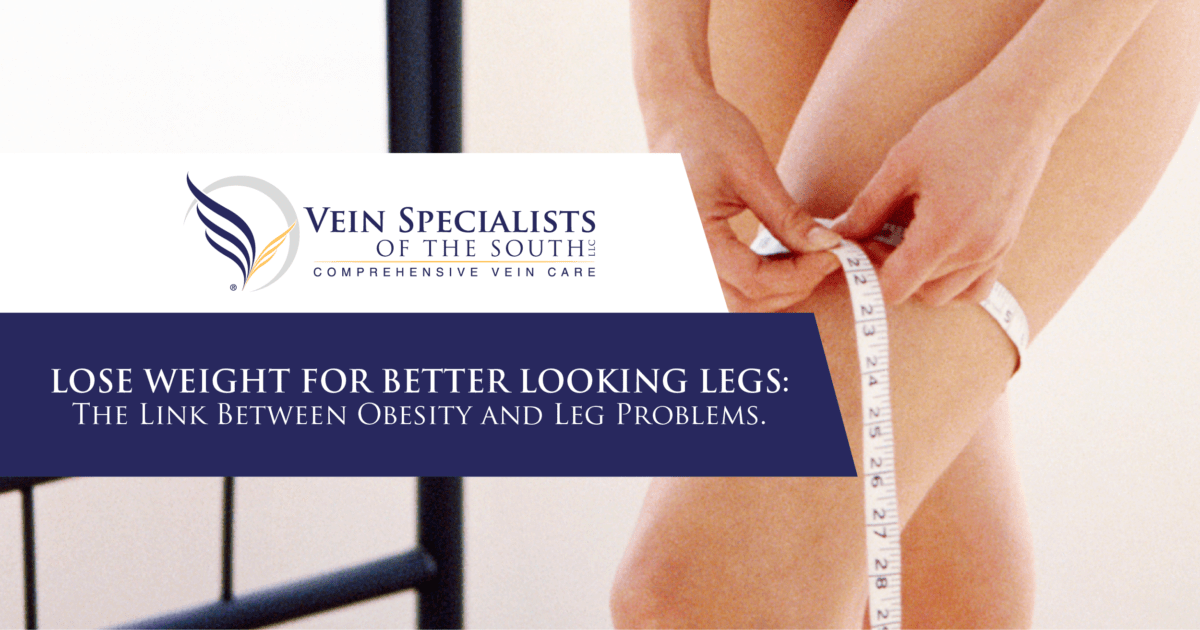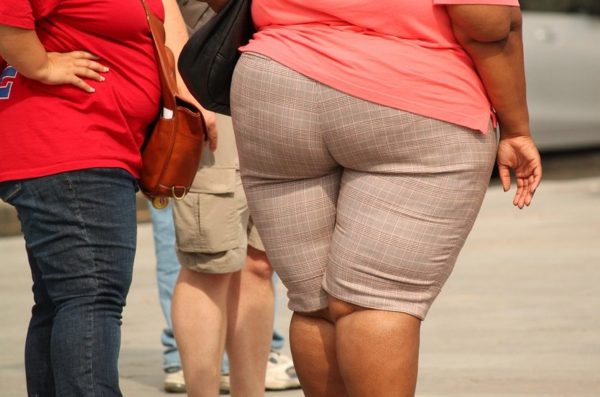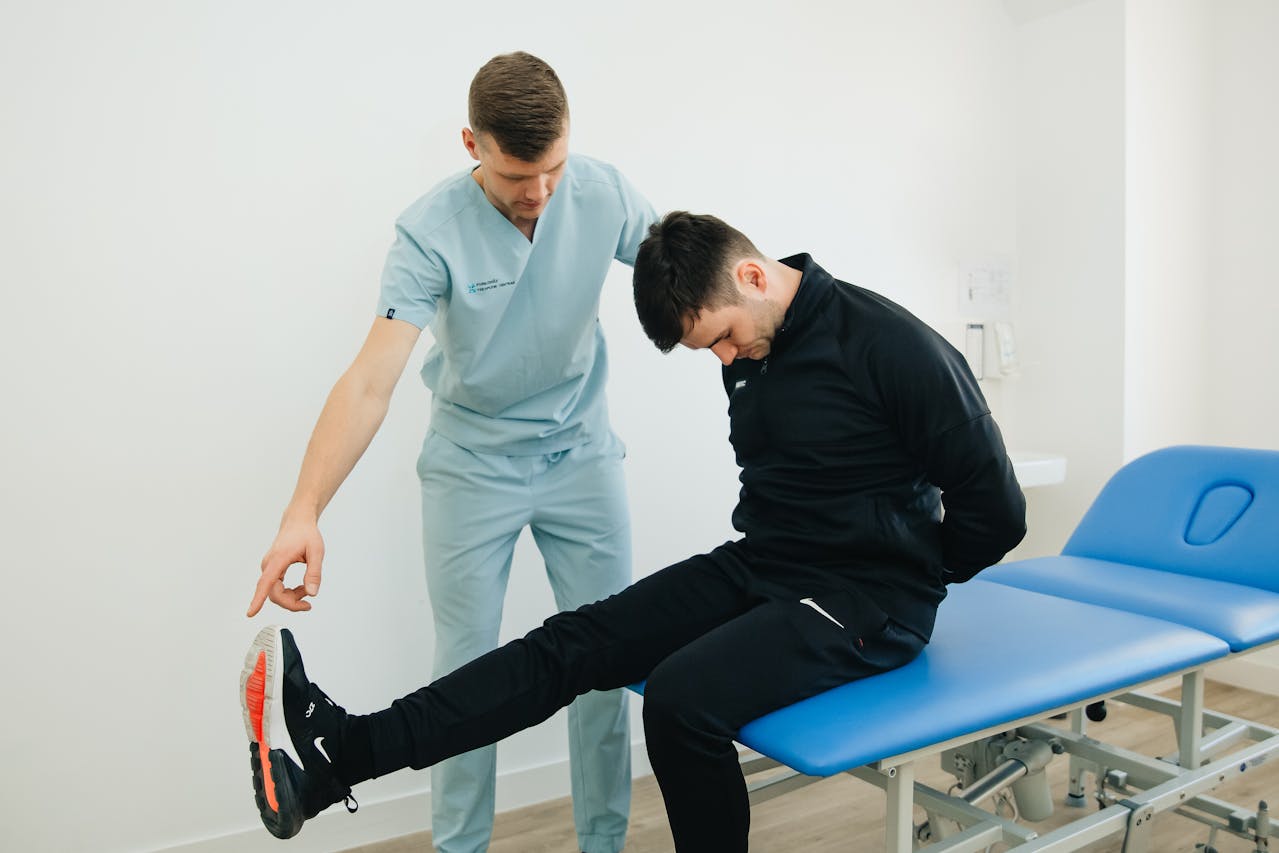How Does Obesity Cause And Worsen Venous Disease?
Venous disease, specifically spider veins and varicose veins, is not solely caused by obesity. Oftentimes, if you develop varicose veins or spider veins, it’s because of a family history of these conditions. However, other risk factors, including obesity, can increase your chances of developing a venous disease or worsening symptoms.
How does obesity affect venous disease?
Spider veins and varicose veins are primarily circulation problems. Changes in the structure of the vein wall, increased venous pressure, and malfunctioning check valves all contribute to venous disease. The increased venous pressure caused by excessive weight increases the rate at which vein wall and valve deterioration develop; this causes the blood to pool in the veins. This results with visible, bulging veins that ache and can lead to other complications.
Can Obesity Worsen Lymphedema?
Lymphedema is a type of swelling that happens when your body collects an excessive amount of lymph fluid in the subcutaneous space. Seen most often in your arms and legs, it can develop in other parts of the body. For many patients, the condition is painful. It can also limit leg movement, leading to significant disability.
What is the link between obesity and lymphedema?
Because the incidence of obesity is high and rising, lymphedema is becoming a major public health concern. A New England Journal of Medicine study found that 75 percent of lymphedema cases were brought on by obesity, usually affecting both legs while only one leg was impacted in 25 percent of cases.
Why does obesity increase the risk of lymphedema?
If you have a healthy lymph system, the lymphatic ducts and pumps efficient manage lymph flow. Lymph fluid returns to the heart through the lymphatic system. If the lymphatic system becomes disrupted, lymphatic fluid accumulates, resulting in swelling and inflammation. One of the hallmarks of lymphedema is swelling that extends to the feet and toes.
Various factors contribute to obesity-induced lymphedema. Excess fat deposits put pressure on your body’s lymph channels. These fat deposits may also cause inflammation, destroying lymph vessels. Other factors that bring on obesity-induced lymphedema include an underlying venous disease, increase in lymph fluid production and less lymph clearance due to reduced mobility. In some cases, obesity may trigger a pre-existing but previously non-symptomatic lymphatic deficiency.
Can losing weight reverse lymphedema?
If you decrease your weight, your lymphedema may improve, become more management, or even go away. In the New England Journal of Medicine study, researchers assessed people who once had a Body Mass Index (BMI) that was higher than 60 and lowered it to below 50. Of these patients, it appears that improvement/recovery from the condition is possible with weight management.
What Is The Link Between Obesity And DVT (Deep Vein Thrombosis)?
Since 1980, obesity has more than doubled around the world. Researchers have found that the number of deep-vein clots is also rising, indicating that obesity may be to blame. While doctors are still looking for an exact reason, they have confirmed that if you have a BMI of 30 or higher, you are more likely to develop a deep vein clot than those who are at a normal weight. When a clot forms deep within the veins, medical professionals refer to the condition as deep vein thrombosis or DVT.
What causes DVT in those who are obese?
If you are overweight, you may have a lifestyle that is less active. When you’re idle, your blood flow slows. Also, an excess amount of abdominal fat can prevent blood from moving easily within your body’s deep veins. Both of these issues increase your DVT risk.
Researchers have also found that obesity modifies your blood chemical makeup, causing inflammation to develop. This also increases your chances of getting DVT.
How can I reduce my risk of DVT?
To decrease your risk of DVT, consider losing weight. Not only will it make your legs look and feel better, but weight loss also changes your blood chemistry, lowering your risk of developing many life-threatening diseases.
According to studies, when overweight and obese adults performed a moderately intense aerobic exercise, they saw an improvement in their blood health. This happened for people even if they were unable to lose weight with exercise alone.
Modfying your diet can also help you lose weight and lower your DVT risk. Consider adding fish that are high in omega-3 fatty acids to your diet.
A good exercise program, healthy weight management, wearing compression hose, and elevating your legs everyday are part of our Better Veins for Life program.
Get Help With Obesity And Leg Problems At Vein Specialists Of The South In Central Georgia
Are obesity, leg, and vein problems affecting your quality of life? We can help, even if the problem has already progressed. At Vein Specialists of the South in Central Georgia, we use the latest treatment options including ultrasound mapping, compression, medication, and minimally invasive office-based walk-in/walk-out procedures. Dr. Kenneth Harper is board-certified by the American Board of Surgery and is a Diplomat of the American Board of Venous and Lymphatic Medicine. Contact us for a consultation today.











